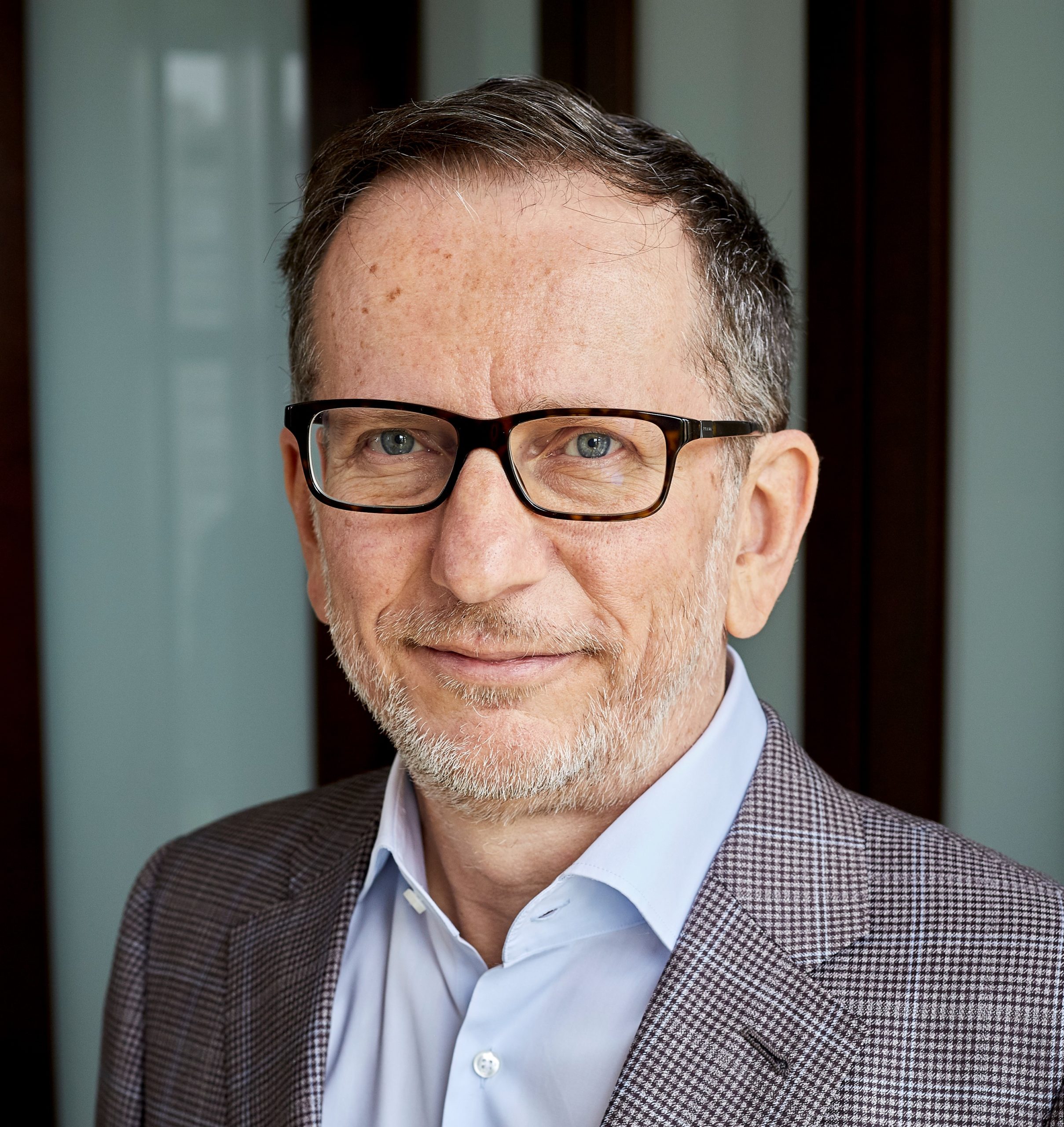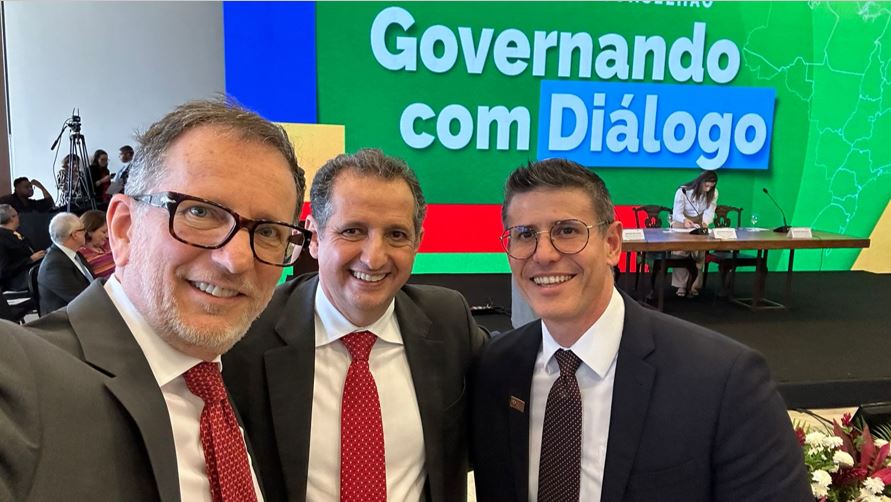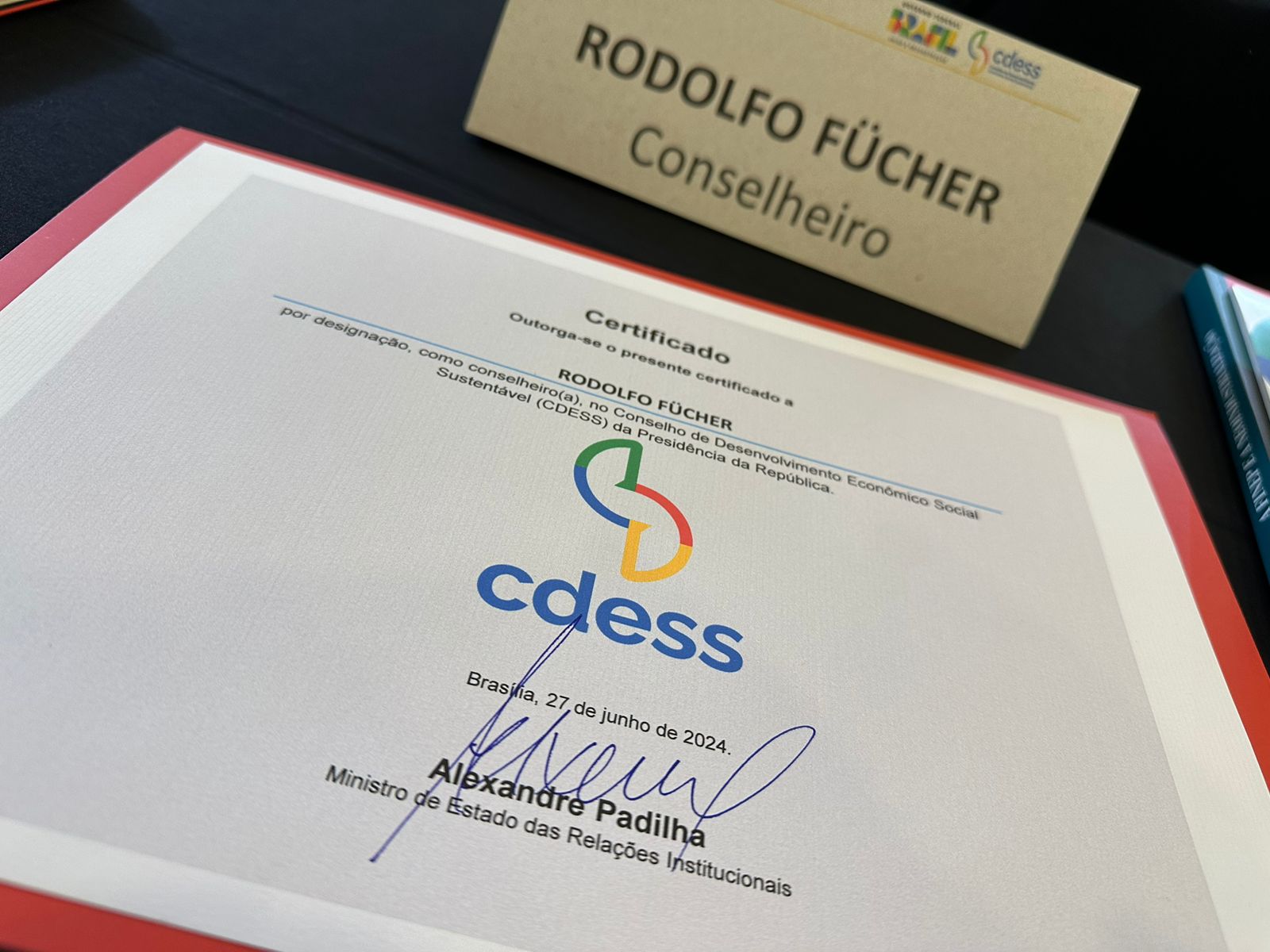
 On the morning of Wednesday, June 26, a presidential decree signed by President Lula appointed 20 new advisors to the Council for Sustainable Economic and Social Development (CDESS), known as Conselhão. The mandate of the newly appointed members is scheduled to end on May 3, 2025. Among the new members is Rodolfo Fücher, president of the ABES Council, who celebrated the opportunity to officially contribute to the body, as he participated in the Committee of Technology, Innovation and Digital Transformation (CTITD) as a guest. “I am very happy to participate in the famous Council representing ABES. I really want to contribute to the development of public policies, to help build a more digital and less unequal Brazil, which is our main objective within the association”, he highlighted.
On the morning of Wednesday, June 26, a presidential decree signed by President Lula appointed 20 new advisors to the Council for Sustainable Economic and Social Development (CDESS), known as Conselhão. The mandate of the newly appointed members is scheduled to end on May 3, 2025. Among the new members is Rodolfo Fücher, president of the ABES Council, who celebrated the opportunity to officially contribute to the body, as he participated in the Committee of Technology, Innovation and Digital Transformation (CTITD) as a guest. “I am very happy to participate in the famous Council representing ABES. I really want to contribute to the development of public policies, to help build a more digital and less unequal Brazil, which is our main objective within the association”, he highlighted.
 On Thursday, June 27th, Rodolfo Fücher attended the inauguration ceremony of the new counselors during the 3rd Plenary Meeting of the collegiate. The event, which began at 9 am at the Itamaraty Palace, was attended by President Lula and several State ministers. The session was not just an inauguration formality, but also a space to debate the country's direction and present concrete proposals to the Federal Government.
On Thursday, June 27th, Rodolfo Fücher attended the inauguration ceremony of the new counselors during the 3rd Plenary Meeting of the collegiate. The event, which began at 9 am at the Itamaraty Palace, was attended by President Lula and several State ministers. The session was not just an inauguration formality, but also a space to debate the country's direction and present concrete proposals to the Federal Government.
Laércio Cosentino, president of TOTVS, delivered a document to the president about the work of the Council's thematic committees. Cosentino emphasized the relevance of the Plano Brasil Digital 2030+, a strategic project delivered at a previous meeting, highlighting the importance of a robust digital agenda for the country's socioeconomic and sustainable development. The plan is structured around six fundamental pillars: Digital Infrastructure, Strategic Technologies, Research and Innovation, Digital Education, Digital Social Inclusion and Business environment. With 27 strategic actions, the objective of this plan is to position Brazil as a global leader in digital transformation.
The ceremony highlighted the relevance of CDESS as a relevant forum for dialogue between different sectors of society and the government, aiming to build sustainable public policies that boost growth and reduce inequalities.














